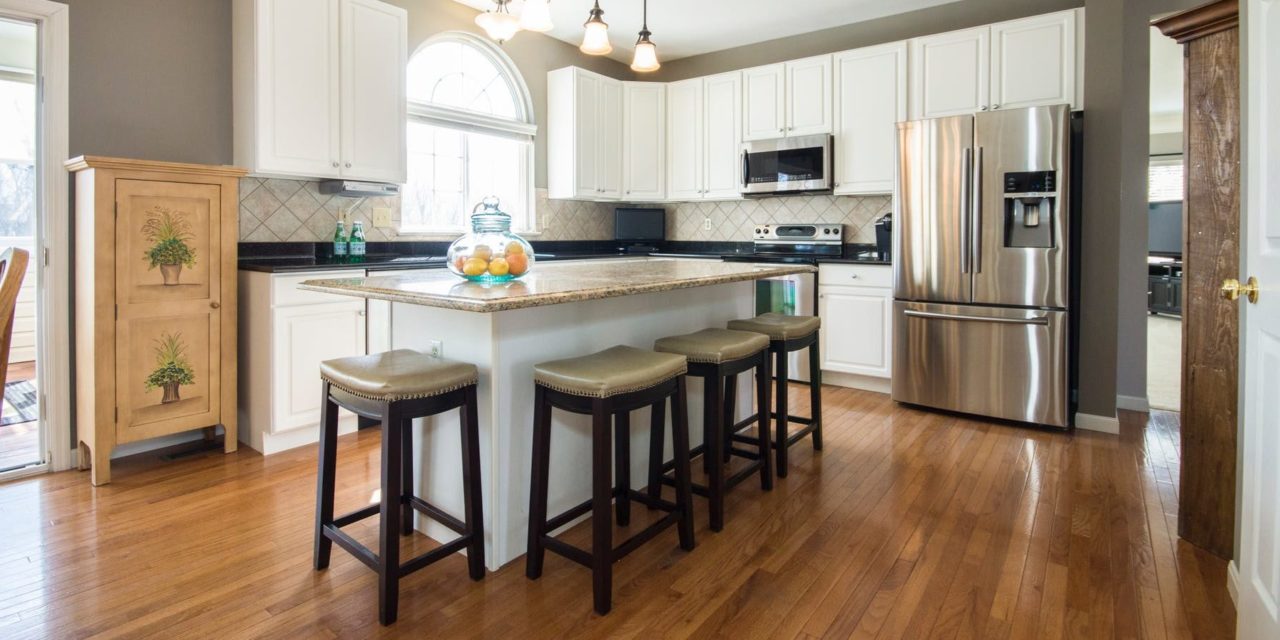If you are in the market for new kitchen flooring, you are undoubtedly aware that it can be a confusing decision. If you have decided on bamboo, you may still have some questions.
Characteristics
• Solid bamboo floor planks are made from solid bamboo fibres that are bonded together with adhesive resins.
• Strand-woven is similar, but the fibres are woven together at 90-degree angles. This improves strength and hardness.
• Engineered bamboo is constructed by using a thin layer of natural bamboo affixed to a backing material. It is the most affordable of the choices.
The bamboo floor planks and strand-woven can be sanded down for refinishing as they wear over time. The engineered bamboo cannot.
Clean Up
We are talking about using this flooring in a kitchen where it is prone to be attacked by spills, stains and heavy traffic.
In its natural state, bamboo is somewhat less absorbent than hardwood. A bamboo floor is designed to withstand spills, frequent cleaning, warping, and mould with proper sealing. The sealing agents are generally polyurethane-based.
Wax can be used but is only recommended in commercial settings since they require periodic industrial buffing.
Many of the bamboo products on the market come pre-sealed. The engineered flooring is equipped with a thick, invisible wear layer to protect the surface. There is a chance of damage at the seams.
Scratches
Bamboo is harder than many other hardwood choices, but it can still be damaged.
Unprotected chair legs dragged across the floor can leave gouges and scratches. Women’s stiletto pumps can leave marks. Pets with claws can be a problem.
Common sense prevention is recommended. Use mats and rugs in all high-traffic areas and front of the sink, stove, and refrigerator. Make sure all chairs have protective pads on the bottoms and take care when moving larger items. Keeping pets’ nails manicured can also help.
On a regular basis, sweep or vacuum the floor to remove any loose dirt or debris. If left in place, the tiny particles can scratch the surface.
Ecology
Bamboo is one of the most renewable natural resources on the planet. It can be ready for harvest and use within three to five years, compared with 20 years for a tree. It is recyclable and biodegradable.
However, in some cases, bamboo has been planted in lieu of other vegetation that would be more important, especially in feeding the population. There is also an impact on the environment from the vehicles that transport the bamboo from Southeast Asia to other parts of the world.
The manufacturing process can also add to off-gassing from the use of chemicals in the adhesive.
Making a decision
Because of its hardness and water resistance, bamboo is a popular choice for kitchen flooring. It can be stained or painted to give you the exact colour you want. If this is interesting to you and you are considering choosing bamboo flooring in Ottawa, contact Continental Flooring to discuss the options in greater detail. They are flooring experts serving the Ottawa area for over 20 years.










